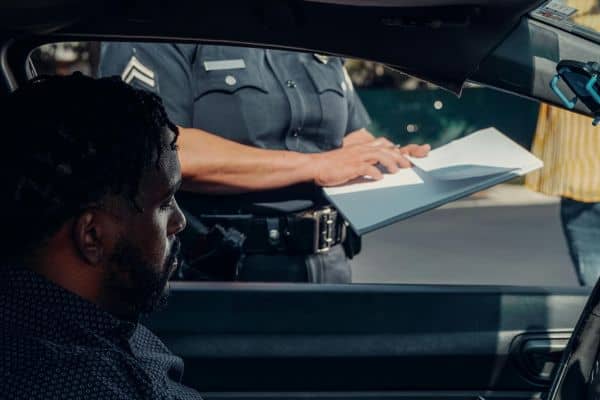DUI Laws and Penalties in South Carolina (2024 Update)

If you have been charged with a DUI, it’s easy to feel overwhelmed and unsure of what to do next. The legal system can be intimidating, and the consequences of a conviction can be severe. That’s why we believe it’s so important for anyone accused of DUI to have a clear understanding of the laws and potential penalties they face.
In South Carolina, the legal limit for blood alcohol concentration (BAC) is below 0.08% for drivers 21 and over, and just 0.02% for those under 21. If you’re caught driving with a BAC above these limits, you can be charged with DUI – and the penalties can be harsh, even for first-time offenders.
But BAC isn’t the only factor that matters in a DUI case. The circumstances of your arrest, your prior criminal record, and the strength of the evidence against you can all play a role in determining the outcome of your case.
South Carolina’s DUI Laws
South Carolina Motor Vehicle Codes prohibit operating a vehicle while under the influence of alcohol, drugs, or a combination of substances that materially and appreciably impair the driver’s faculties.
Let’s break down the key components of these laws and explore how they affect drivers in the Palmetto State.
What is a DUI in South Carolina?
You can face South Carolina DUI charges if you operate a motor vehicle under one of the following conditions:
- Your blood alcohol concentration (BAC) reaches a certain threshold – see below.
- You’re driving while impaired by alcohol, drugs, or a combination of substances, regardless of your BAC level.
BAC of 0.08% or higher
This BAC is the legal limit for most drivers. At this level, the state considers you intoxicated per se, meaning the BAC alone is enough evidence for a DUI charge.
BAC of 0.05% to 0.079%
While below the legal limit, you can still face DUI charges if law enforcement determines your driving ability is materially and appreciably impaired.
BAC of 0.16% or higher
This level triggers enhanced penalties, even for first-time offenders.
- Longer license suspension periods.
- Higher fines.
- Increased jail time.
- Vehicle confiscation.
Zero Tolerance for Underage Drivers
For those under 21, any BAC of 0.02% or higher results in automatic license suspension.
Commercial Drivers
The legal limit is lower at 0.04% BAC when operating a commercial vehicle.
What You Need to Know About Implied Consent
When you apply for a driver’s license in South Carolina and use a vehicle on state roadways, you give consent to law enforcement to test you for the presence of alcohol or drugs.
The state determines BAC levels through chemical tests, typically breath, blood, or urine analysis.
Factors affecting BAC tests include :
- Body weight and composition
- Gender
- Rate of alcohol consumption
- Time since your last drink
- Food intake
- Medications
Refusing to submit a chemical test may result in automatic license suspension, separate from any DUI charges you might face.
The Game-Changing “All Offender Law”
On May 19, 2024, South Carolina implemented a significant change in its DUI laws by introducing the “All Offender Law.”
Mandatory ignition lock rules
This new legislation requires all drivers convicted of DUI, regardless of their BAC level, to participate in the Ignition Interlock Device (IID) program.
Supersedes old BAC requirements
Previously, participation in the IID Program was optional for first-time offenders with a BAC below 0.15%.
The new law cracks down on drunk driving and may reduce the number of alcohol-related traffic fatalities in the state.
The South Carolina Department of Probation, Parole, and Pardon Services (SCDPPPS) will oversee this new program and administer the new devices according to court orders.
What First-Time DUI Offenders Should Expect
If you’re facing your first DUI charge in South Carolina, here’s what you might encounter, according to the SC Department of Safety:
- License suspension: 6 months.
- Fines: to $400 (plus assessments and surcharges).
- Jail time: 48 hours to 30 days.
- Mandatory completion of an alcohol and drug safety action program.
- Installation of an ignition interlock device (under the new All Offender Law).
It’s important to note that these penalties vary based on your BAC level and other circumstances surrounding your arrest.
Repeat Offenders Face Harsher Consequences
For those who find themselves charged with a second or subsequent DUI offense, the penalties become significantly more severe.
Second Offense
- License suspension: 1 year.
- Fines: $2,100 to $5,100 (plus assessments and surcharges).
- Jail time: 5 days to 1 year.
- Mandatory ignition interlock device installation.
Third Offense
- License suspension: 2 to 4 years.
- Fines: $3,800 to $6,300 (plus assessments and surcharges).
- Jail time: 60 days to 3 years.
- Mandatory ignition interlock device installation.
- Vehicle confiscation.
Fourth and Subsequent Offenses
- License revocation.
- Jail time: 1 to 5 years.
- Vehicle confiscation.
Felony DUI: When Impaired Driving Turns Deadly
A DUI charge escalates to a felony in South Carolina if it results in significant bodily injury or death.
Felony DUI carries severe penalties:
- For great bodily injury: Mandatory 30 days to 15 years in prison and fines up to $10,100.
- For death: Mandatory 1 to 25 years in prison and fines up to $25,100.
These cases often involve complex legal issues and require experienced legal representation.
Aggravating Factors: When Bad Goes to Worse
Certain circumstances lead to enhanced penalties for DUI offenses in South Carolina:
- High BAC Levels: If your BAC is 0.16% or higher, you’ll face increased fines and longer jail sentences.
- DUI with a Minor in the Vehicle: Results in additional charges and penalties, including child endangerment.
- Causing Injury or Death: As mentioned earlier, these situations bring felony charges with severe consequences.
DMV Administrative Penalties
In addition to criminal penalties, DUI arrests in South Carolina trigger administrative actions by the Department of Motor Vehicles (DMV):
- Immediate license suspension upon arrest.
- Administrative hearings to challenge the suspension.
- Possibility of obtaining temporary or restricted licenses.
Drivers can request an administrative hearing within 30 days of arrest to contest the license suspension.
More on Ignition Interlock Devices for DUI Offenders
With the implementation of the All Offender Law, ignition interlock devices have become a central part of South Carolina’s DUI prevention strategy.
- How they work: The device requires a breath sample before allowing the car to start.
- Installation requirements: All convicted DUI offenders must install the device.
- Duration: The required length varies based on the offense and prior convictions.
- Costs: Offenders are responsible for installation and maintenance fees.
In 2022 alone, interlock devices “prevented over 2,800 engine starts with a BAC of 0.08% or higher” in South Carolina, according to the South Carolina Department of Public Safety.
Legal Defense Strategies For Fighting DUI Charges
When facing DUI charges in South Carolina, you should understand the possible defense strategies that your experienced criminal defense attorney could bring to dispute the charges.
- Challenging the legality of the traffic stop.
- Questioning the accuracy of field sobriety tests.
- Disputing the reliability of breathalyzer results.
- Examining procedural errors in the arrest process.
Skilled DUI attorneys evaluate your case and determine the most effective defense strategy for your case.
Long-Term Impacts of a DUI Conviction
DUI convictions have consequences that reach beyond the immediate legal penalties.
- Criminal record implications.
- Increased insurance rates.
- Potential employment difficulties.
- Professional license impacts.
- Travel restrictions.
These long-term effects show why taking DUI charges seriously and seeking professional legal guidance is so important.
South Carolina Is Cracking Down on Drunk Driving
DUI laws in the state have recently evolved to address the ongoing challenge of impaired driving.
The All Offender Law marks a significant shift in the state’s approach, requiring all convicted DUI offenders to participate in the Ignition Interlock Device program.
Remember, the consequences of a DUI conviction are severe and long-lasting, so you must act quickly and seek professional legal advice to discover your criminal defense options.
Rock Hill Legal Counsel Can Help
Okoye Law helps South Carolina residents confront DUI allegations and apply defense strategies to reduce penalties or dispute charges.
Schedule a confidential case review today to take action and protect your future.



